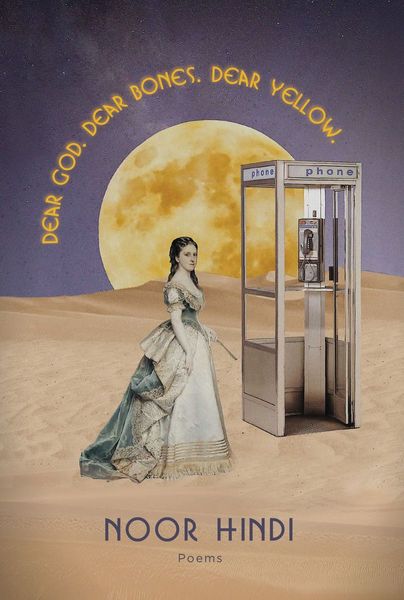
Dear God. Dear Bones. Dear Yellow
What is political poetry? How does history become lived experience? What does it mean to bear witness through writing?
Noor Hindi’s poems explore colonialism, religion, patriarchy and everything in between with sharp wit and innovative precision. Layered to reflect the intersections of her identity, while constantly interrogating this identity itself, her writing combines lyrical beauty with political urgency.
This collection is ultimately a provocation―on trauma, on art, on what it takes to change the world.
Reviews
Sabrina D. @readingsofaslinky
fairuza hanun@silkcuttofu
mighty dragon @naga
mira lee@miralee
nyx@nap
Katelyn B@k8lyn_reads
S.@mythweaver
Highlights
l🌀@llaetitia
Page 31
Sabrina D. @readingsofaslinky
Page 4